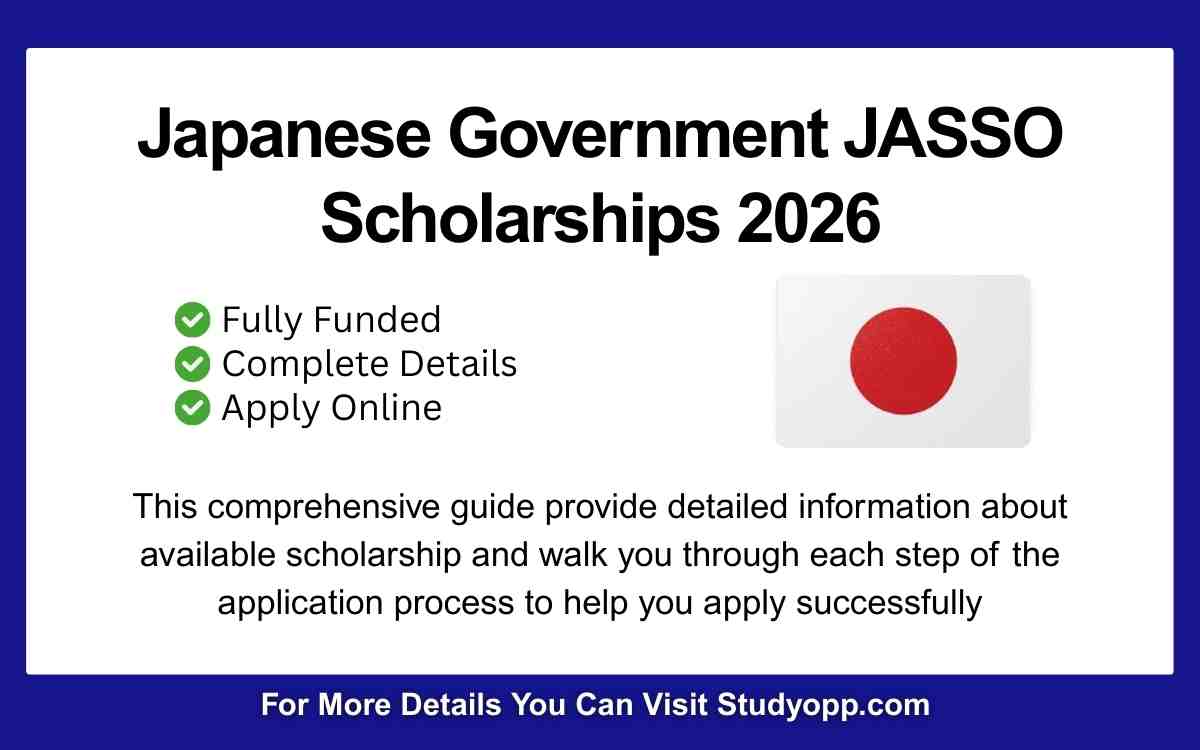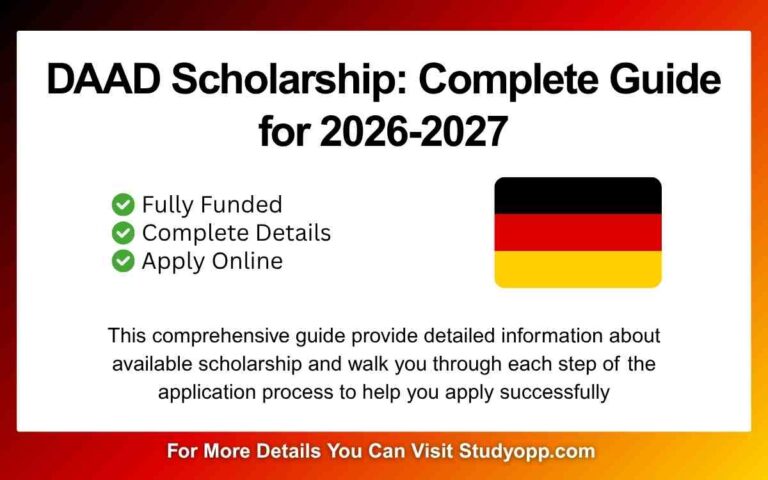Japanese Government JASSO Scholarships 2026

If you want to study in Japan with financial support, the Japanese Government JASSO Scholarships 2026 are one of the most practical options to consider. These programs help students who have the grades and the drive but need help with living costs while studying at Japanese universities, language schools, and exchange programs.
This guide breaks everything down into simple, usable steps — what the scholarships cover, who can apply, how to apply, and what to watch for so your application has the best chance. Read on for a clear checklist and a compact table of the key facts.
Description (what are these scholarships?)
The Japanese Government JASSO Scholarships 2026 are administered by the Japan Student Services Organization (JASSO). They include the Monbukagakusho Honors Scholarship for Privately-Financed International Students and the Student Exchange Support Program for short-term exchange students. Both aim to ease living costs for international learners and exchange participants in Japan.
Degree Level — who is covered
The Japanese Government JASSO Scholarships 2026 support a broad range of study levels: undergraduate, master, doctoral, junior college, colleges of technology (3rd year and above), post-secondary specialized training, and even university preparatory and language institutes when those lead into higher education. Short-term exchange students are covered separately.
Available Subjects
There is no subject restriction. Engineering, humanities, natural sciences, social sciences, business, arts, language studies — students from any academic background may apply as long as they meet the program-specific criteria. This makes the Japanese Government JASSO Scholarships 2026 flexible for most study plans.
Benefits — what the support actually covers
Monthly stipend to help with living expenses (amount depends on the specific JASSO program).
Nationwide recognition across Japanese institutions, which can help stabilize finances while you focus on studies.
Compatibility with exchange agreements and reserved-entry pathways for strong EJU candidates.
Eligible Nationalities
JASSO programs accept international students who hold appropriate Student residence status in Japan and exchange students from partner institutions in countries with diplomatic relations with Japan. Taiwan and Palestine are explicitly included in eligibility lists for some JASSO programs.
Eligibility Criteria — main requirements
General rules vary by stream, but common requirements for the Japanese Government JASSO Scholarships 2026 include:
Student residence status in Japan or accepted reservation status for pre-arrival winners.
Academic standing — a satisfactory GPA; many streams note minimum academic performance (for privately-financed awards a GPA threshold is commonly required).
Language ability — depending on the program, proof of Japanese (JLPT/EJU) or English ability may be required; language requirements can be relaxed for preparatory or language-institute applicants.
Financial checks — household remittances and dependent income ceilings exist for certain awards.
No conflicting scholarships — applicants should not receive other funding that prohibits simultaneous support.
Always check your host university’s international office because quotas and exact criteria can differ by school.
Application Procedure — step by step
1) Before arriving in Japan (Reservation Program)
If you take the EJU and meet the reservation criteria, you can request a scholarship reservation on the EJU application. Successful reservation holders usually receive scholarship confirmation once they enroll in a qualified Japanese institution.
2) After arrival (Regular application through the university)
Students already enrolled should contact their university’s international office. The university screens applicants and recommends successful candidates to JASSO. Note that each institution has a quota so not every eligible student will be recommended.
3) Exchange students
Apply through your home university as part of your exchange agreement. Your institution handles nomination and paperwork with the Japanese partner.
Important Dates
Dates change each year and differ by institution and program. Commonly:
Reservation / EJU linked applications: follow EJU schedules (apply in the EJU application period).
University recommendations: follow host university deadlines. Always confirm deadlines with the international office.
Tip: Plan at least 3 to 6 months ahead. Missing the university-level nomination window is the most common reason applicants miss out.
Final Thoughts
The Japanese Government JASSO Scholarships 2026 are practical and well-structured options for international students who need living-cost assistance while studying in Japan. They are open across many degree levels and fields, and they offer clear application routes either through EJU reservations, university nomination, or exchange agreements. Verify specific amounts, deadlines, and quota rules with your host or home university, and prepare your paperwork early.
FAQs
Q: Can I receive a Japanese Government JASSO Scholarships and another scholarship at the same time?
A: Generally no. Many JASSO awards require that recipients are not receiving another scholarship that forbids concurrent funding. Check program rules and disclose other funding.
Q: How much is the monthly stipend for exchange students?
A: The Student Exchange Support Program typically provides ¥80,000 per month for short-term exchanges. Confirm the exact amount with the host university.
Q: Does Japanese Government JASSO Scholarships accept applicants from all countries?
A: Yes, Japanese Government JASSO Scholarships programs accept international students from countries with diplomatic relations with Japan; Taiwan and Palestine are often listed explicitly for eligibility.
Q: Where do I apply?
A: Apply via your university’s international office, or use the EJU reservation option if you qualify and apply from outside Japan. Exchange students apply through their home university.






